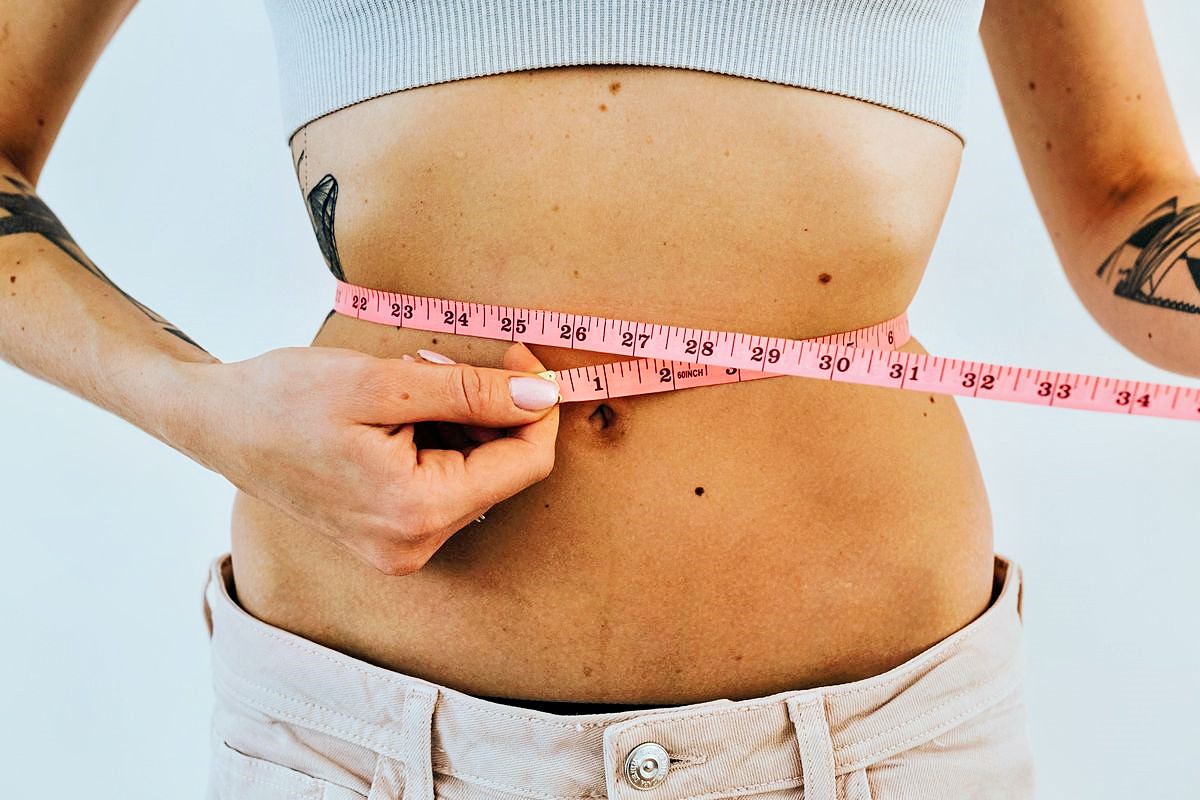We all want to look and feel our best, but the path to a healthy weight is often paved with conflicting advice and confusion. 🤔 From calorie counting to trendy diets, we’ve been bombarded with information that leaves us feeling overwhelmed and uncertain about what to eat.
🧘♂️ The Complexity of Weight Loss
According to Dr. Giles Yeo, a leading expert on obesity and genetics, there is no one-size-fits-all approach to weight loss. Our genetic makeup plays a significant role in how our bodies respond to different foods and diets. 🧬 Some people may thrive on a plant-based diet, while others may find success with a low-carb approach. The key is to find what works best for your unique biology and lifestyle.
Dr. Yeo’s research has uncovered fascinating insights into the genetic factors that influence our relationship with food. For example, some individuals are genetically predisposed to seek comfort in carbohydrate-rich foods during times of stress, while others may lose their appetite altogether. 🍚 This highlights the intricate interplay between our genes, brain chemistry, and eating behaviors.
🍔 The Myth of Calories
One of the biggest misconceptions about weight loss is the emphasis on calorie counting. Dr. Yeo explains that calories are not an accurate measure of how our bodies process food. 📊 For example, a raw stick of celery contains only 6 calories, but when cooked, that number can increase to 30 calories. The truth is, our bodies metabolize different foods in varying ways, making calorie counting an oversimplified and often unreliable method.
Furthermore, the calorie content listed on food labels is based on averages and doesn’t account for individual variations in digestion and absorption. 🔬 Our gut microbiome, for instance, plays a crucial role in how we extract energy from the foods we consume, adding another layer of complexity to the calorie equation.
🥗 The Fear of Food
In our quest for the perfect diet, many of us have developed a condition known as orthorexia – an obsessive fear of eating the “wrong” foods. 😨 Social media platforms like Instagram have fueled this issue, with curated images of “clean” eating and unrealistic body standards. Dr. Yeo cautions against falling into this trap, as it can lead to an unhealthy relationship with food and potentially disordered eating patterns.
Orthorexia often stems from a desire for control and a misguided belief that adhering to strict dietary rules will lead to better health and happiness. However, this mindset can quickly spiral into a dangerous obsession, causing individuals to eliminate entire food groups and restrict their diets to an unsustainable degree. 🚫
🌍 Cultural and Genetic Differences
Our cultural backgrounds and genetics play a significant role in how we process and respond to different foods. 👨👩👧👦 For instance, individuals of East Asian or South Asian descent are more prone to developing type 2 diabetes at lower body mass index (BMI) levels compared to other ethnicities. Understanding these differences can help tailor dietary approaches to individual needs.
Additionally, cultural traditions and food preferences shape our eating habits from a young age. 🌎 In some cultures, carbohydrate-rich staples like rice or bread are central to meals, while in others, protein and healthy fats take precedence. Embracing these cultural nuances and finding ways to incorporate them into a balanced diet can promote long-term adherence and satisfaction.
🍽️ Embracing Sustainable Habits
Instead of chasing the latest fad diet, Dr. Yeo encourages us to focus on developing sustainable habits that promote overall well-being. 🌱 This includes learning to cook and source better quality foods, incorporating more vegetables, and finding joy in the act of eating. By embracing a positive relationship with food, we can make lasting changes that support both our physical and mental health.
One of the key principles Dr. Yeo advocates is mindful eating – paying attention to our body’s hunger and fullness cues, savoring each bite, and being present during mealtimes. 🧘♀️ This approach helps us tune into our natural appetite signals and develop a healthier relationship with food, free from guilt or obsession.
Moreover, Dr. Yeo emphasizes the importance of finding an exercise routine that you enjoy and can stick to in the long run. 🏃♂️ Regular physical activity, combined with a balanced diet, can have profound effects on our overall well-being, both physically and mentally.
🌳 Environmental Impact and Sustainability
In addition to personal health considerations, our food choices also have a significant impact on the environment. 🌍 Overconsumption of animal products, for instance, contributes to greenhouse gas emissions, deforestation, and water scarcity. By shifting towards a more plant-based diet, we can reduce our carbon footprint and support sustainable agriculture practices.
However, Dr. Yeo acknowledges that not everyone has the privilege or resources to make drastic dietary changes. In such cases, he advocates for making small, gradual adjustments that are feasible within one’s circumstances. 💚 Simple steps like reducing food waste, choosing locally sourced produce, and supporting ethical farming practices can make a meaningful difference.
Copyright © 2025 Hea1th.net

